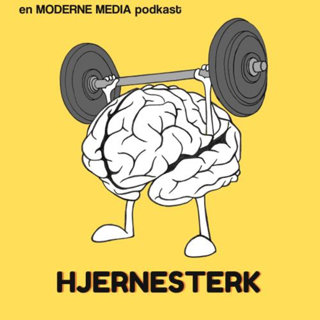
The Surprising Facts about Insulin You Never Knew
Today I want to share something about insulin that you may have never heard before and clear up some confusion regarding insulin. The main reason why the keto diet and intermittent fasting work so well to support a healthy body is that they both help lower insulin. However, insulin has certain benefits. This is where the confusion starts. How can insulin be harmful and also have health benefits? Potential health benefits of insulin: • It helps lower blood sugar levels • It supports muscle growth • It protects against muscle atrophy • It supports the arteries • It helps lower LDL cholesterol • It helps lower blood pressure • It lowers the production of glucose in the liver • It supports the absorption of potassium and magnesium • It suppresses lipolysis • It is a potent anti-inflammatory • It has antioxidant properties • Insulin nasal spray is used to help people who have dementia • It helps increases testosterone • It helps lower uric acid The real problem is with the insulin receptors. When the receptors become resistant, as in insulin resistance, we lose the function of insulin. When someone has insulin resistance, they actually have an insulin deficiency. You may have excess insulin in your blood, but it’s not affecting the receptors. A high level of insulin is what creates insulin resistance. The more you increase insulin, the less the receptors will work. The best ways to fix insulin resistance: 1. Get on the Healthy Keto® diet 2. Start doing intermittent fasting 3. Get regular exercise 4. Reduce your stress 5. Get plenty of sleep The best natural remedies for insulin resistance: • Apple cider vinegar (1 Tbsp in water) • Berberine • Cinnamon • Chromium • Zinc • Vitamin D • Magnesium • Potassium • Omega-3 fatty acids DATA: https://pubmed.ncbi.nlm.nih.gov/14986... https://www.ncbi.nlm.nih.gov/pmc/arti...
13 Okt 202312min

Using Sh*t as an Effective Treatment???
Today we’re going to talk about fecal microbiota transplantation and how to support your microbiome naturally. Fecal microbiota transplantation has been found to be effective for certain conditions, including: • C. diff • Irritable bowel syndrome • Autism • MS • Rheumatoid arthritis • Parkinson’s disease • Chronic fatigue syndrome • Acne • Depression Fecal microbiota transplantation may also help decrease the risk of cancer and has been found to be superior to antibiotics. Fecal transplant has been around for many years. However, if we had a better relationship with our microbes, we may not even need this therapy. The more we sterilize our environment, the more we’re going to need this therapy. Things to avoid to support your microbiome: • Drugs • Chemicals • Pesticides • Herbicides • Antibiotics • Milk products • Canned products • Juices • Radiated foods The best ways to support your gut microbiome: 1. Consume a wide variety of plant foods 2. Consume fermented products 3. Lower your stress 4. Do fasting 5. Exercise 6. Take a colostrum supplement (consider breastfeeding for newborns) 7. Take a probiotic DATA: https://www.ncbi.nlm.nih.gov/pmc/arti... https://pubmed.ncbi.nlm.nih.gov/23852...
13 Okt 202310min

Eat Eggs and Butter and Lower Your Cholesterol
Today we’re going to talk about how consuming eggs and butter could potentially benefit your cholesterol. However, keep in mind that if you have a genetic problem called familial hypercholesterolemia or if you are a hyper responder, this information will not apply. Health benefits of cholesterol: • It helps make hormones • It helps make vitamin D • It supports cell membranes • It supports the brain • It supports the immune system • It’s needed to make bile salts Egg yolks are one of the highest sources of cholesterol-mobilizing nutrients: choline and lecithin. One egg gives you about 186 mg of cholesterol. But, the body makes about 3000 mg of cholesterol a day. Dietary cholesterol isn’t associated with increased cholesterol. There are also no studies that show that consuming eggs negatively affects the cardiovascular system. In one study, they found that certain phytonutrients in eggs improved the cholesterol profile in a group of people on a low-carb diet. Egg yolks are also loaded with vitamin K2, which supports a healthy heart. Grass-fed butter also has an incredible influence over cholesterol, and if you can find cultured butter, then that’s even better. Cultured butter has the added benefit of friendly bacteria that help boost the benefits of butter. Your friendly microbes make bile salts, which help mobilize and regulate cholesterol. Butter is also a good source of vitamin K2 and is great for anyone going through menopause because cholesterol is needed to support hormones. One study shows that butter has a neutral association with cardiovascular disease and diabetes. Beta-carotene, which is high in butter, may also help lower cholesterol. Butter is also rich in CLA, butyric acid, and omega-3 fatty acids, which may benefit healthy cholesterol. If you’re concerned about your cholesterol, certain things can potentially help lower cholesterol naturally, including: • Exercise • Vitamin B3 (niacin) • Nattokinase • Red yeast extract • Bile salts DATA: https://www.ncbi.nlm.nih.gov/pmc/arti... https://pubmed.ncbi.nlm.nih.gov/16340... https://pubmed.ncbi.nlm.nih.gov/19369... https://pubmed.ncbi.nlm.nih.gov/21130... https://academic.oup.com/jn/article/1... https://pubmed.ncbi.nlm.nih.gov/27355... https://pubmed.ncbi.nlm.nih.gov/26786... https://www.ncbi.nlm.nih.gov/pmc/arti... https://www.frontiersin.org/articles/... https://www.frontiersin.org/articles/... https://www.ncbi.nlm.nih.gov/pmc/arti...
13 Okt 20238min

Potassium Deficiency Causes Diabetes
Today we're going to talk about how potassium affects diabetes and high blood pressure. Diuretics are commonly used to treat high blood pressure. But, they come with side effects, including an increased risk of developing diabetes. On the flip side, ace inhibitors, also used to treat high blood pressure, protect against diabetes and lower the risk of diabetes. I believe the big difference between these two drugs, when it comes to diabetes risk, is what they do to potassium. Diuretics deplete potassium, and without enough potassium, insulin can't be released very well. A deficiency of insulin can then lead to diabetes. Ace inhibitors increase potassium by helping to prevent the loss of potassium. So why do we even need a drug—why aren't we just consuming more potassium? Many people support healthy blood pressure and healthy blood sugar levels by taking potassium. Benefits of potassium: • It protects the kidneys • It protects the heart • It helps protect against stroke • It helps protect against diabetes • It helps power the nervous system in connection with the muscles • It helps regulate sodium The RDAs for potassium are 4700 mg. It might surprise you, but bananas aren't a good source of potassium. A few of the best sources of potassium are: • Leafy greens • Potatoes • Avocado • Electrolyte powder DATA: https://pubmed.ncbi.nlm.nih.gov/1619503/ https://ucfhealth.com/our-services/en... https://www.ncbi.nlm.nih.gov/pmc/arti...
12 Okt 20236min

The Best Diet for Familial Hypercholesterolemia
Today we’re going to talk about the best diet for familial hypercholesterolemia. With this condition, a person has 50 percent of the LDL receptors than usual, which means they have a higher risk of a buildup of LDL. The top signs of familial hypercholesterolemia are fat deposits on the Achilles tendons, wrists, or eyelids and a condition called arcus senilis, which is whitening around the iris. Key points from an important study: • The current dietary guidelines for the management of coronary heart disease in familial hypercholesterolemia are based on outdated and unsupported information. • There’s no evidence to support the recommendations of consuming a low saturated fat diet or low cholesterol diet, which are given to individuals with a genetic cholesterol problem. • A low-carb diet was found to significantly improve cardiovascular disease biomarkers. • There is sufficient rationale for conducting clinical trials to assess the effects of a low-carb diet on familial hypercholesterolemia individuals with insulin resistance. It may be good to question if lowering the cholesterol and saturated fats in your diet is the best strategy to focus on. But talk to your doctor before making any changes to your diet or medications. In my opinion, people with high cholesterol should focus more on lowering their carbs rather than saturated fat or cholesterol. Natural remedies for cholesterol problems: 1. Get on the Healthy Keto® diet 2. Do intermittent fasting 3. Take red yeast extract 4. Take policosanol 5. Take niacin 6. Exercise 7. Consume garlic 8. Consume tocotrienols DATA: https://ebm.bmj.com/content/26/6/295 https://www.frontiersin.org/articles/... https://www.mdpi.com/2227-9059/10/8/1809 https://www.ahajournals.org/doi/full/... https://www.atherosclerosis-journal.c... https://www.ncbi.nlm.nih.gov/pmc/arti... https://pubmed.ncbi.nlm.nih.gov/20153... https://www.diabetesincontrol.com/low... https://pubmed.ncbi.nlm.nih.gov/25468...
12 Okt 20238min

Clean Your Kidneys of Uric Acid and Oxalates
Today we’re going to talk about how to protect your kidneys. The kidneys can take a beating and can even regenerate. They are composed of roughly one million tiny filters, which filter your blood. But as you age, you start losing these filters—so it becomes even more important to start eating better and decrease exposure to toxins. The two worst things for your kidneys are sugar and oxalates. It’s crucial to stop consuming sugar and high-carb foods and to start limiting your exposure to high-oxalate foods. However, consuming cheese or dairy with foods that are high in oxalates, but are otherwise healthy, can help counter kidney damage from oxalates. Foods high in oxalates: • Almonds • Spinach • Beet tops • Peanuts • Grains • Beans • Sweet potatoes • Cassava • Tapioca • Kiwi • Chocolate • Swiss chard • Turmeric • Cinnamon • Clove The best ways to protect your kidneys: 1. Consume lemon water every morning 2. Consume apple cider vinegar mixed in water 3. Consume 2.5 liters of water a day 4. Avoid high-oxalate foods or add dairy to high-oxalate foods 5. Get on the Healthy Keto® diet and do intermittent fasting 6. Avoid fructose 7. Avoid consuming high levels of vitamin C 8. Consume potassium (not for end-stage kidney disease) 9. Consume plant foods and microgreens DATA: https://academic.oup.com/ajcn/article... https://www.ncbi.nlm.nih.gov/pmc/arti... https://www.ncbi.nlm.nih.gov/pmc/arti... https://pubmed.ncbi.nlm.nih.gov/18065... https://www.ncbi.nlm.nih.gov/pmc/arti... https://www.ncbi.nlm.nih.gov/pmc/arti...
12 Okt 202314min

The Top Signs of a Digestive Enzyme Deficiency
Today I want to cover the top signs you’re deficient in digestive enzymes. There are five pieces to this puzzle, and we’re going to break down each one. 1. The stomach Top symptoms of a deficiency in stomach enzymes: • Indigestion • Gas The best natural remedy: • Betaine hydrochloride 2. The pancreas Top symptoms of a deficiency in pancreatic enzymes: • Problems digesting fat • Bloating • Abdominal pain • Deficiencies in fat-soluble vitamins The best natural remedies: • TUDCA • A supplement containing pancreatic enzymes • Betaine hydrochloride • Ox bile 3. The gallbladder • Does not produce enzymes but contributes to enzymes and supports the absorption of fat-soluble nutrients Top symptoms of a deficiency in bile: • Bloating • Belching • Burping • Deficiencies in fat-soluble nutrients • Pain in the right shoulder or neck • Fullness under the right rib cage 4. The small intestine Top symptom of a deficiency in enzymes from the small intestine: • SIBO The best natural remedies: • Betaine hydrochloride • Ox bile • The carnivore diet • Intermittent fasting • Garlic 5. The large intestine • Does not produce enzymes, but the microbes in the large intestine do produce enzymes that support digestion Top symptoms of a deficiency in these microbes: • Diarrhea • Constipation • Fatty stool Natural remedies: • Leafy greens • Probiotics • Fermented foods
11 Okt 202314min

The #1 Worst Food for Your Heart (HINT: It's Not Sugar)
Today we're going to talk about the absolute worst food for the heart: trans fats. While sugar is bad for the heart, trans fats are even worse. In 2015, the FDA no longer classified trans fats as safe. Consuming trans fats increases the risk of several serious health issues, including: • Heart attack • Stroke • Type 2 diabetes • Cancer • Increased LDL • Decreased HDL • Inflammation • Autoimmune diseases • Infertility • Tendon and bone degeneration Partially hydrogenated oils contain trans fats, but products that contain either partially hydrogenated or hydrogenated fats should be avoided to help protect against heart disease and other health problems. It turns out that animal feed still contains trans fats. This means that you could consume trans fats indirectly by consuming animals fed trans fats. Restaurants also commonly serve foods containing trans fats. There's even a loophole that allows half of a gram of trans fats in one serving size to claim that a product has zero trans fats. Overall, it's crucial to read food labels and be aware of what you're eating, especially at restaurants. DATA: https://journals.plos.org/plosone/art... https://www.westonaprice.org/health-t...
11 Okt 202310min




















